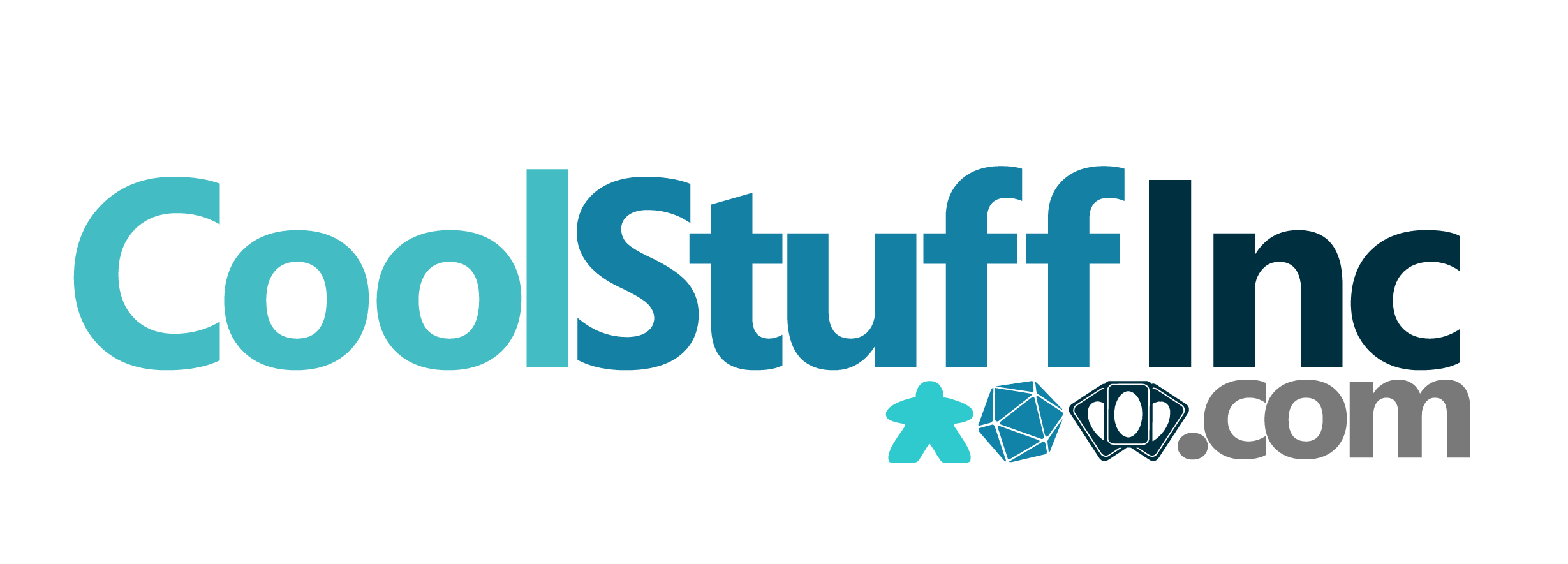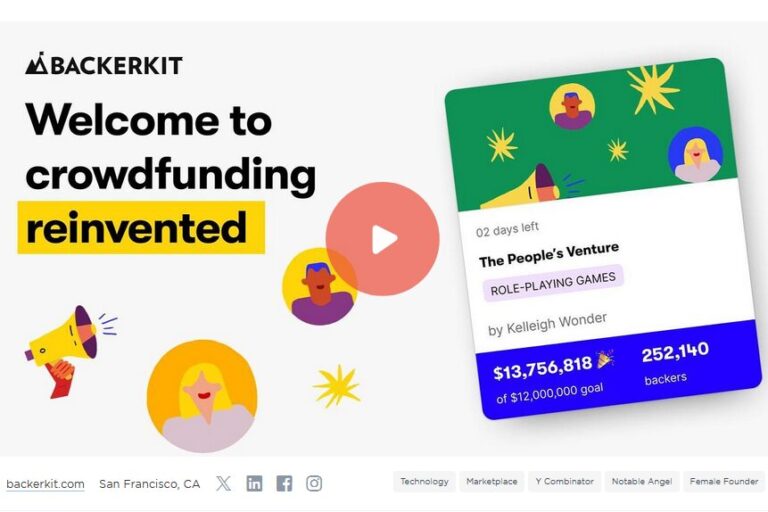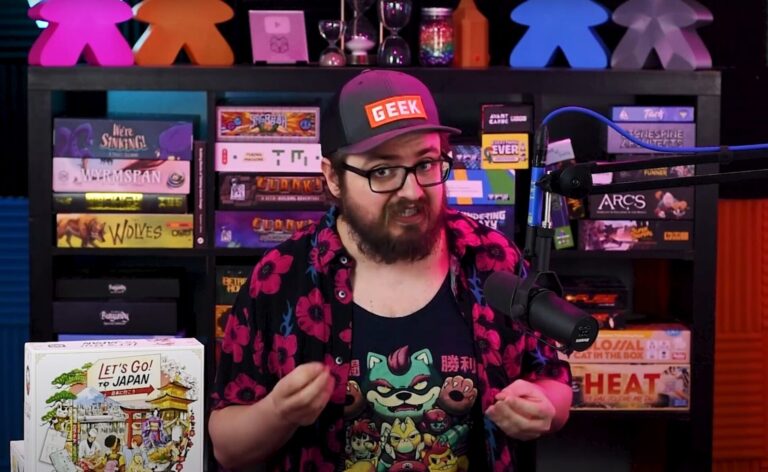
“It’s too late for us”: CoolStuffInc founder on how Amazon pushed it out of the online board game market
CoolStuff Inc, one of the world’s largest online board game retailers for more than a decade, made the surprise announcement in September that it was pulling out of the market to focus on the more profitable CCG space of Magic, Pokemon and Lorcana. A week later, the news broke that Amazon was being sued by the US Federal Trade Commission and 17 US states for using “anticompetitive and unfair strategies to illegally maintain its monopoly power”.
CoolStuffInc founder Jerry Sunkin had a single-word response when he took to Twitter to comment on the news: “Finally”. Wrapped up in that one word was years of growing frustration that despite its size, huge customer base and extensive expertise, CoolStuffInc has been squeezed out of the online board game market by a mammoth player undercutting them at every turn.
Finally. https://t.co/24668sipGX
— Jerry Sunkin (@Jerry_Sunkin) September 26, 2023
Sunkin launched CoolStuffInc with his wife and a group of friends in 2002, running the business out of a house and specialising in CCGs such as Magic. He told BoardGameWire that by 2008, they had heard that competitor CardHaus was selling dozens of copies of a game called Setters of Catan – “many dozens of copies a week”. Believing they could emulate that success, they started experimenting with board game sales, and later that year brought in a product manager specifically for the segment.
“It was slow at first”, Sunkin said, “but there were some immediate successes. At the time, it was fairly easy to buy board games, because you just went to distribution. Rio Grande sold their whole catalogue through distribution, and they were the primary importer from Germany for the games, so it was simple, you know – there were not 3,000 board games coming out per year, to muddle the market and allow you to make bad decisions. So at the time, we started it up, and it just consistently grew. Our main competition was Thought Hammer, and I’m not sure exactly what happened to Thought Hammer, but eventually they left the picture [Thought Hammer shut its doors in 2013].
Sunkin said that despite the company’s CCG roots, at one point board games exceeded more than half of its sales. But CCGs continued to grow, and the board game side of the business stagnated.

He said, “We were certainly heavily discounting, which some of the manufacturers didn’t like, but things went pretty smooth. I think it was about 2013 that Amazon hired – I don’t know what they call the position – but essentially a product manager for board games, and things started to change for us at that period of time. That year, board games were our largest product line, and they were doing quite well for us. Most games still sold – although there were a lot of games being released, it was still just sort of easy to pick the winners and the losers. And, you know, the market hadn’t really fractured too much. Kickstarter had started, but they were smaller at the time.
“Then there was a combination of factors starting right about that time, where manufacturers publishers really started to take more control of their product lines, we started to see MAPs (Minimum Advertised Price) implemented, some of them stopped selling through distribution, then Kickstarter was becoming more and more of a player, more and more board games were being released. So the the market was becoming more difficult. At the same time, we started getting this pressure from Amazon, and it wasn’t too bad at first. But eventually, we’d put a board game up for just some weird price. Within an hour, Amazon would have the exact same price, with a better shipping option than we can provide.
“…and they just started taking more and more of the market share. That, with the fracturing of the market, it was difficult to stock the games. Distribution started pulling back – this is later, 2015 or 2016, something like that. And it just became harder and harder to pick the winners and the losers. And we tried to roll with the market: we thought for a while that maybe, because we were gamers, we understood the industry, that we would do better. And I think we did a little bit. But there were just so many market pressures that our board game market started to shrink, and about 2020, about when we hit the pandemic, we were like, ‘Okay, we’re not going to do this forever.'”
CoolStuffInc certainly wasn’t anti-Amazon at the beginning, Sunkin said, noting that the company had integrated its inventory with them in the past – but added that it “never saw a lot of success there”.
He said, “Our biggest problem there is that Amazon is able to ship products for so much less than we are, that cost for them is so much less, and they don’t mind taking a loss on a product, you know, to buy market share or whatever the case might be. So, because of that competition, their products get listed first – I mean, you can read the complaint against them just to see all the different tactics that they were using.
“We would put an item on sale – they would match it. And at the time, our free shipping level was at $100. Where, if you weren’t Amazon prime member or you met the minimum purchase, you could get that game shipped for free by Amazon, and didn’t have to bundle it with a bunch of other games like you had to do on our website. We did that to keep our costs down – it’s much better to sell $100 worth of product and ship it for free… it just doesn’t make sense for us to ship one product for free.
“…We just weren’t able to compete. And then they used to have to work through FedEx and UPS, but of course now they have their own transportation and shipping, and so their costs, I’m sure, are even less than they were back in the day. All that competitive advantage made it very, very difficult. Plus on top of that, then you have to pay Amazon fees, which takes a huge chunk of your profit out. So it just wasn’t financially feasible for us to compete with Amazon on their own marketplace.”
Sunkin added, “I do believe in the in the free market. But I think that there’s also some things that they do, where they target a competitor, and if they lose a few million dollars, they don’t care – if they lose half a billion dollars, I don’t think they care, as long as they absorb the the market.
“I’ve got a little over 200 employees, and I can’t take that kind of loss, where they’re perfectly willing to just throw their weight around… if they were just doing it based on, ‘here’s this great service that we offer’, or whatever, I certainly would not have a problem. However, for me, it took a turn when they started targeting us specifically. And like I say, we proved that this is what they were doing – we would put, say, very strange prices on a board game, you know, $22.42 or something like that. Within an hour they would have the exact same price.
“So it’s one thing to have to compete, it’s another thing to be targeted, you know, by an 800lb gorilla… we can sort of co-exist, but only on their terms. And their terms were unprofitable for us.”
Fortunately for CoolStuffInc, Sunkin said they realised the “writing was on the wall” as long ago as 2015 or 2016 and have been steadily diversifying their operation ever since. First up was the launch in 2016 of Quartermaster Logistics, a new business arm specialising in shipping, Kickstarter fulfillment and fulfillment straight to distribution. That was followed earlier this year with the creation of sales and distribution-focused Quartermaster Direct, which brought in Funagain’s James Takenaka and Erica Sanders in the wake of that company shuttering its operations at the start of 2023.

Sunkin said of Quartermaster Logistics, “We had the techniques and the expertise on how to package board games well, and get them delivered to our customers on time and everything like that. And Kickstarter was still growing at that point [in 2016], so we realised that there was a market for us to start a company to do Kickstarter fulfillment. We worked with Tom Vasel and the Dice Tower to fulfill some of their projects. We also had some some of our own board game projects that we tried to do for a little while, which we weren’t very good at, but one of them went on – one of our partners, Shane Meyerscough, he’d already started Gray Fox Games underneath the CoolStuff umbrella. And he took that company and he’s had quite a bit of success with it.
“So it was natural for us, we felt like this was something we could do. We’ve always done all our programming and developing in house, so we already had much of the software written for us to just transition into full-time fulfillment. Quartermaster Logistics… that’s a big company – we’ve been in a 50,000 sq ft warehouse that’s been just filled to the gills for the last three years. And we’re transitioning to a 125,000 sq ft warehouse. Its sales have exceeded board game sales – of course it doesn’t really do sales, it does services – but it’s exceeded board games when they were at the peak.”
He added, “In the last year Funagain went out of business, and one of their primary things they were doing was fulfillment. But they also had a distribution arm that would take the the products that were in their warehouse, and sell them to retailers and sell them into distribution. So we’ve started a branch of Quartermaster Logistics called Quartermaster Direct… and it’s a real opportunity for us – that company is one of the reasons why we don’t feel like board games are our future.”
Amazon, for its part, has thoroughly rejected the FTC’s claims of monopolistic practices, and has confirmed it will contest what it describes as a “misguided” lawsuit. The company has attempted to claim the lawsuit would actually harm consumers, by forcing Amazon to engage in practices which would lead to higher prices and slower deliveries.
But Sunkin is convinced by his own long experience that the legal action has merit. He said, “We absolutely welcome it, yeah – very happy. I mean, it’s too late for us as far as board games are concerned. But maybe it’ll help some other people down the road. And maybe it’ll straighten Amazon out in terms of their unfair competition with other companies.”
Case studies – is Amazon maintaining an illegal monopoly in online board game retail?
BoardGameWire reached out to several large board game retailers to gauge their opinions on Amazon monopolising the sector, and received replies from the CEOs of US-based Game Nerdz and the UK’s Zatu Games. Their responses are included in full below.
Simon Budd, CEO of UK-based retailer Zatu Games

We love Amazon. They create jobs, provide a fast and reliable shopping channel. Only poor companies that are unable to compete with them on what is a very level playing field complain.
I just feel that Amazon brings convenience to so many people. Yes our company might make more money if Amazon wasn’t in existence, but to suggest that their success makes them liable in some way is ridiculous.
Jared, President & CEO of US-based retailer Game Nerdz

What is GameNerdz’s history with Amazon as a competitor? How has their effect on your online business changed between 2005 and now?
We began selling online with Amazon in 2008. At the time, we viewed Amazon as a partner that was offering a marketplace and avenue to sell to consumers, similar to Ebay.
It was not until 2014 that we launched our own site and began considering them competition. As a competitor, we’ve never really viewed them any differently than anyone else.
They have certain advantages over smaller companies due to their size, however it is our job to innovate and close those gaps as much as possible.
What’s been the biggest issue GameNerdz has faced in recent years in terms of Amazon competition, and has there been any way to fight it?
The biggest issue about Amazon is concerning Minimum Advertised Pricing (MAP). Many companies have MAP policies and they expect everyone to follow them. Unfortunately, pricing on Amazon is controlled mostly by automated software and they have shown little interest in following MAP policies. As such, Publishers are reluctant to enforce
these policies to them due to the volume and exposure Amazon brings to their games. As such, we may have to sell items at a higher price than Amazon so we can comply with the MAP policy and I am sure some business is lost to do the price variance.
Do you agree with the FTC’s view that Amazon is using “anticompetitive and unfair strategies” to maintain a monopoly, and drive up prices for buyers and sellers online?
Not at all. I have no idea how anyone can call Amazon a monopoly. Do they have competitive advantage? Absolutely. They beat a lot of people to market and with a lot of innovative processes. However, they do enable other businesses to compete on their own turf.
As a business, you can sell on your own website and you can sell on many 3rd party marketplaces including Walmart, Target, Ebay and of course Amazon. Amazon enables companies of all sizes exposure to a wider customer base than they normally would on their own website.
Has GameNerdz used Amazon as an online storefront in the past?
Yes, that’s our Amazon store. We have sold there on and off for 15 years. We were exclusively selling on Ebay and Amazon for our first 6 years. We launched our site in 2014 and maintained our Amazon selling until 2018.
In 2018, we grew our site to the point it was difficult to keep up with sales on 2 other marketplaces so we shut those down. We’ve since recently returned to selling on Amazon but to a much smaller degree.
What was your experience of that? Part of the FTC claim is that some sellers are paying close to 50% of their total revenues to Amazon, does that sound familiar / accurate from your experience?
That’s certainly possible for some companies but only if you’re using fulfillment by Amazon (FBA) which includes a storage, processing and shipping fee for your item. Unfortunately, even the cheapest, lightest shipments can cost more than $5 to ship.
So if you’re selling an item for $10-$12 on Amazon with free shipping, it’s impossible not to have to pay 50% or more to someone. What’s disingenuous is saying those are all Amazon fees that go straight to their bottom line. If sellers do not want to use FBA then they can choose to handle their own warehousing and fulfillment like we do. We do not use FBA, however, it’s not to save money. It is to maintain control of our own inventory and maintain our packing standards. FBA as a shipping service is actually extremely competitive and it took many years and a lot of volume before our rates were competitive with theirs.
Do you have current or future plans to use Amazon as a storefront in this way? Why do you think other sellers continue to rely on Amazon, given the incredibly high fees situation?
We will continue to offer some of our products on Amazon but only as a fulfilled by merchant (FBM) seller.
Additionally I would like to add that buying on Amazon is almost never the cheapest option for the consumer. Especially when that item is purchased through a 3rd party seller. They have a 15% fee to pay regardless of fulfillment and that gets passed along, in whole, or in part, to the consumer. I’d argue that most buyers are aware of this and choose Amazon for other reasons. Some pros to buying on Amazon for the average consumer are speed, convenience, and trust. Some cons are inflated pricing, poor packaging, and counterfeit products.







Cool Stuff made bad business decisions that effectively caused their demise. Customers used to be able to , walk into Cool Stuff , see a wall of games , and place your order , and receive the game right then. Cool Stuff decided to move their game warehouse , which crippled their ability to provide service to walk in business. This business wound was self inflicted. Cool Stuff chose to discontinue hosting board game events , that drew the board game community to their business. This poor business wound was self inflicted, also. Poor business decisions by Cool Stuff , is the reason their out in the cold , concerning board games. Don’t blame Amazon!
CSI had terrible customer service, often delayed shipping, and subpar in stock selection of board games compared to their competition both inside and outside of Amazon. Sunkin’s complete lack of ownership here is a clear indication on why they are no longer in business.
Larry, walk in customers were a tiny portion of our over all sales. Sorry that we stopped carrying them in store and hosting events. It just didn’t make financial sense to continue.
Kenny, I wasn’t aware we were out of business. Please don’t say anything to our employees, they would be heartbroken. We certainly didn’t do a good job stocking games, I’ll agree to that…
All the best guys,
Jerry
First…all proper vendors have automated software that scans for price changes on products across the Internet and their system automatically updates. This has been the norm for over a decade.
Second, nothing Amazon did was anti-competitve. That’s how business works. I don’t pay shipping with ANY vendor, EVER. If a place charges shipping, I don’t shop there, and I did this long before Amazon. It’s the same. With credit/debit fees. If you charge your customer for YOU doing business, that’s the wrong answer.
Third, Cool Stuff Inc was always a garbage company. Bad prices, bad customer service, bad shipping methods, and many other reasons.
Amazon is guilty of a lot of things, but what happened to Cool Stuff is not one of them.
I stopped using CSI because people associated with their business couldn’t keep their politics out of their professional life.
[…] proud of, but exclusives such as Facebook banning ads for Votes for Women’s Kickstarter, CoolStuffInc explaining how Amazon pushed it out of the online board game market, and the revelation that Essen Spiel, the world’s biggest board game fair, was using AI art in […]
This was an amusing read today – a notorious online discounter who became a powerhouse by ruthlessly squeezing local game stores got squeezed out by Amazon and is finding out, it’s hard to compete against a big online discounter. Well, imagine that!